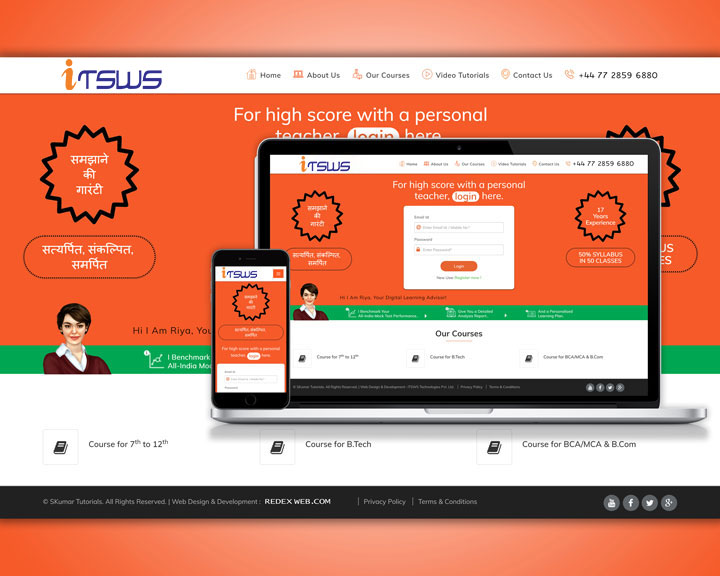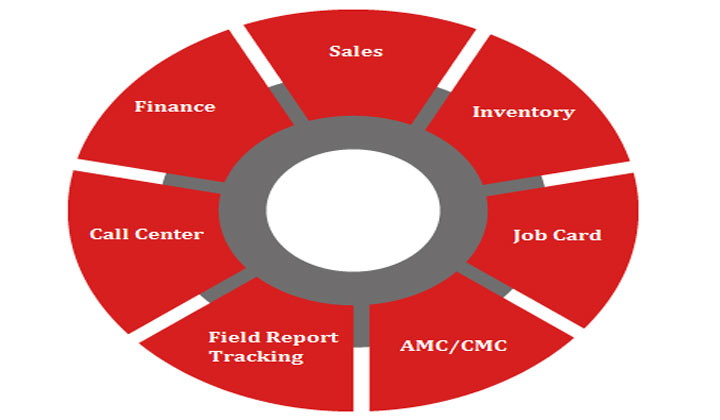- Home
- Improving Career Strategies with Technological Skills
Improving Career Strategies with Technological Skills
- Posted On: 2021-07-01 18:20:01

Company & Brands Reviews
LIC Housing Finance Limited is the largest housing finance mortgage loan companies in India, registered and corporate office at Mumbai. The company was established in 1989. LIC of India holds founder, promoter & controller status. The company main objective is to provide long term finance to individuals for purchase of construction of house or flat for residential purpose, repair and renovation of existing flats, houses. The company also take care and provide long term finance to persons who engaged with the business of construction of houses or flats for residential purpose. LIC of India have a large number of valuable customers across the country. Several numbers of users use the services and share their positive feedback regarding business. With the LIC support, many customers have settled their business in the country. Few of them are also shared the customers complain regarding the services which makes the company more effective for the customers.
LIC Housing Finance Limited
-
- 1 Review
Mahalaxmi Packers & Movers - Madurai is a company where talented employees are hired to provide complete stress-free services without any loss. Packers & Movers Madurai (mahalaxmipackersmovers.in) has packing moving, local shifting, furniture shifting, office shifting, loading and unloading of household goods, insurance, storage, industrial packing moving, corporate packing moving, car transportation by car containers. This makes us proud to say that we have a wonderful experience in this industry.
Mahalaxmi Packers and Movers
-
- 1 Review
BYJU'S is an Indian largest ed-tech company and the creator of India's most loved school learning app. Launched in 2015, headquarter in Bengaluru. BYJU'S offers highly personalised and effective learning programs for classes 1 to 12, and aspirants of competitive exams like JEE, IAS etc. With 50 million registered students and 3.5 million paid subscriptions, BYJU'S has become one of the most preferred education platforms across the globe.
Byjus
-
- 1 Review
At HomeLane is a leading home interior design solution company in India, bring together functionality and aesthetics to provide homeowners with customized and efficient home designs. The home designers are experienced professionals and specialize in home interior designs and home décor, and help you create a personalized home to suit your lifestyle. We are here to help you find the best home decor and home design to match your needs and style. All our products come with a 5-year warranty along with unwavering support and maintenance services.
HomeLane
-
- 1 Review
Amul is an Indian Cooperative dairy Company. Its headquarters at Anand in Gujrat. It was formed in 1946 by Tribhuvandas Patel under the guidance of Sardar Vallabhbhai Patel.
Amul
-
- 1 Review
Related Blog
Express yourself to wide customer base.
Why customer reviews can help in driving sales success
Online reviews are a determining factor of the success of a business as buying decisions are made by customers after visiting reviews. Companies have a fear of getting bad reviews on their website as bad reviews may lose the image of the company in the market.
Knowledge about computer is must in this time
It has become necessary for everybody to have the knowledge regarding of the computer. Otherwise people cannot get employment as computers have invaded most the fields.
Best B.Tech College in Lucknow
Future Institute of Engineering & Technology is one of the best engineering college in Lucknow, offers top class engineering courses with proper practical skills for industry.
Growing Business through User-Specific Content
One of the best ways to grow your business and reach the more target audience with the best quality of creative contents, photos, customers feedback, reviews, etc. Many users share their own views about the features of the product.
Safe and Secure Shifting in Delhi NCR
Hire professional packers and movers in Delhi NCR, for hassle free movement at the affordable cost. ShiftingWale Packers and Movers is one of the trusted and professional packers and movers in Ghaziabad.
Effective use of stearic acid in our daily life
See the best use of stearic acid in our daily lives and see the best skincare products made from stearic acid that we use in our daily lives.







